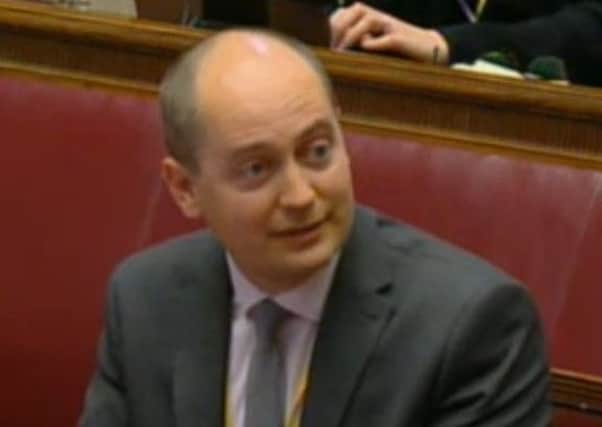RHI inquiry: Not a single unannounced audit of a boiler before 2016 scandal


The evidence emerged at the RHI Inquiry today where a senior figure from Ofgem – the GB energy regulator which ran both the Whitehall and Stormont versions of the green energy scheme – was giving evidence.
Inquiry barrister Donal Lunny put it to Edmund Ward, who is now Ofgem’s head of technical, development and continuous improvement, that evidence obtained by the inquiry showed that there had been no unannounced audits before the 2016-2017 financial year. Dr Ward said: “In Northern Ireland, yeah.”
Advertisement
Hide AdAdvertisement
Hide AdDr Ward said that he was not aware of the date when the first unannounced audits began but that “from memory, it wasn’t the very start of the financial year”.
That suggests that no such inspections took place prior to the damning Northern Ireland Audit Office report of June 2016, which was followed in the autum of that year by investigatory sessions of the Assembly’s Public Accounts Committee and then by the BBC Spotlight investigation in December which brought the scandal to wider public consciousness, precipitating the political crisis.
Overall, just 1.46% of boilers in Northern Ireland were audited at all, compared to 7.5% of installations in GB.
Dr Ward said that since the first unannounced audits in Northern Ireland there had been “a very small number” of unannounced audits in GB “on the basis of specific referrals”.
Advertisement
Hide AdAdvertisement
Hide AdThe inquiry has already revealed evidence that senior Ofgem figures privately despaired at the inability of their counter fraud department to prove fraud.
In August 2016 an Ofgem official emailed Teri Clifton, one of those managing the administration of Stormont’s scheme, to suggest that after concerns raised in an audit the claimant should be sent an email from the email address [email protected] inviting them to prove that they had a legitimate use for the heat being subsidised.
Ms Clifton forwarded this to colleagues with the comment “you couldn’t make it up could you ... as Gareth and I were discussing, it’s no wonder we can never prove fraud”.
Ofgem associate director Gareth John, the man in charge of RHI across the UK, replied with an image of a t-shirt bearing the words ‘Keep calm and hide the evidence’ and saying “apparently every time we ask for additional info [from a claimant under investigation] we also send the participant one of these t-shirts”.
Advertisement
Hide AdAdvertisement
Hide AdIn evidence today, Dr Ward also said that if a boiler was selected for audit, inspectors would not have necessarily reported back to say that there were multiple other boilers on the site, although it might feature as an observation in the auditor’s report.
That meant that so-called ‘gaming’ – installing numerous smaller boilers rather than one large boiler at a single site in order to secure the most lucrative tariff – was not being effectively monitored, even though it had been identified as a potential problem from the outset.
When asked whether a greater number of audits might have detected some of the trends which it is now clear were apparent, such as multiple boilers and “slightly questionable heat uses”, Dr Ward said: “I think more might have identified that [but] I think however many audits had been done, if nobody was looking at those and pulling them together then arguably it wouldn’t have made a difference.”
The senior Ofgem official added that there were “probably enough triggers” in the audits which did happen to have raised concerns but that “the wider question here is that these issues of sort of gaming, actions against policy intent, weren’t being considered by the department”.